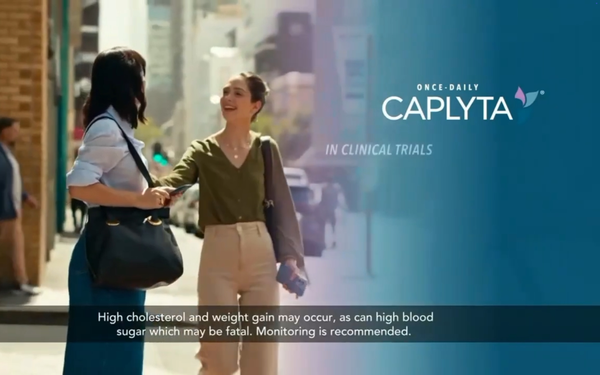
The 43rd annual J.P. Morgan Healthcare
Conference got off to a newsy start Jan. 13 in San Francisco, with Johnson & Johnson’s CEO Joaquin Duato addressing a just-announced $14.6 billion purchase of Intra-Cellular Therapies -- and
Pfizer CEO Albert Bourla offering strong words for the potential anti-vaccine policies of the incoming Trump administration.
The planned purchase of Intra-Cellular will give J&J control of
mental health drug Caplyta, which Duato said “will lift our sales growth immediately,” and which he predicts will become more than a $5 billion annual business.
During the first
three quarters of 2024, Caplyta garnered $483 million in sales. The drug is approved for treatment of schizophrenia and bipolar disorder (see this recent commercial), with an indication for major depressive disorder now being considered by the Food & Drug Administration.
advertisement
advertisement
O'Neil
Trader, an analyst with Seeking Alpha, pointed out in a post that Monday’s deal came to fruition only following last week’s settlement of patent litigation between Intra-Cellular and
Sandoz. That agreement essentially gave Intra-Cellular, and now J&J, an exclusive on the drug through 2040.
“I believe J&J is paying (at least) a fair price, with decent
likelihood of creating substantial long-term value for the company,” Trader wrote.
On the other hand, Jeff Jonas, a portfolio manager at Gabelli Funds, expressed concerns to Reuters of
possible antitrust problems getting government approval for the deal, even under the new Trump administration.
Reuters pointed out that J&J’s existing schizophrenia drug,
“paliperidone, sold under multiple brand names such as Invega and Xeplion, brought in $3.16 billion in sales in the first nine months of 2024.”
Duato expressed optimism about
working with the new administration, telling J.P. Morgan analyst Chris Schott that “we are going to be able to discuss how we can have pro-innovation, pro-access policies here in the
U.S.”
“We have worked with 24 different presidential administrations,” he said of J&J’s 139-year history.
Duato was followed on the J.P. Morgan stage
by Pfizer CEO Bourla, who was a bit more outspoken about the incoming Trump team than he had been last month in presenting the firm’s 2025 guidance.
While echoing Duato
in saying that “the opportunities outweigh the risks” when it comes to policies on patient access to healthcare (“out-of-pocket is extremely expensive, we need change on that”)
and innovation (“China is growing faster and faster, and we should not let them take the lead”), Bourla was blunt in comments about Rober F. Kennedy Jr., Trump’s choice to head
Health & Human Services:
“Clearly, the things that he has said [about] vaccines in the past are in complete contradiction with what we believe, what the medical community believes,
what the scientific community believes, and what regulators all over the world believe.
“If he does some of the things that he has spoken in the past,” Bourla continued, RFK Jr.
could expect to be opposed by “the entire medical community, the entire scientific community,” plus insurance companies “because they know [vaccinations are] very-cost effective, and
also employers, who really believe that by using vaccinations, they are reducing their health care costs rather than increasing it.”
Then, mentioning polio in particular, he warned that
if vaccination thresholds get too low, “we will start having evidence that will be detrimental for him and for the administration. “
On a happier note, “the president-elect
is very much focused on cancer. He has seen a lot of his friends and people that he knew dying from cancer and he keeps asking every time we meet, ‘What are we doing with cancer and can we cure
it?’”